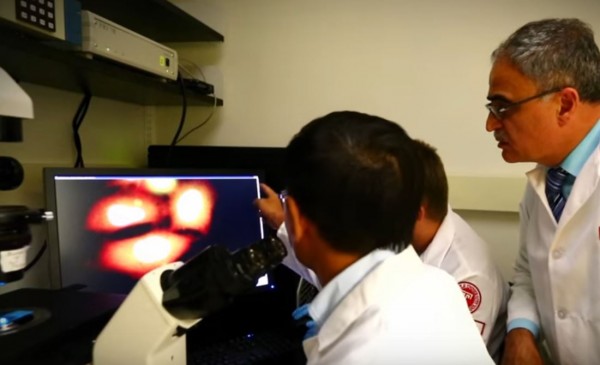By Jacques Strauss, | May 03, 2017

Securing the definitive HIV and AIDS cure has proven to be challenging and expensive. (YouTube)
The search for definitive HIV and AIDS cure has been rigidly difficult for researchers. However, with the most recent discovery of a North Carolina researcher, significant results could be achieved in no time.
Treating HIV has been challenging for most experts for the virus would tend to hide in some tissues. However, with the most recent discovery of UNC Chapel Hill doctors, they managed to pinpoint the virus' hiding place.
Like Us on Facebook
Dr. Jenna Honeycutt, the person behind the discovery, tried to wrestle with such puzzle even before she became a doctor. Dr. Honeycutt sought to identify other hiding places of the virus, making it difficult to treat with current conventional medicines.
With the help of a converse animal model, Dr. Honeycutt was able to examine everything but T cells. Allowing her to narrow down her findings in specific tissue called macrophages, something other experts did not know before.
"So the battle to try to eradicate the virus from the body has just become clearer because now we know where all the enemies are. If you leave some of your enemies alone, they have the opportunity to come back and haunt you. She didn't take the shortcut. She actually went for the hardest possible target and found it," ABC11 quoted lab director and professor of medicine, Dr. J Victor Garcia as saying.
The said discovery will surely be helpful in improving HIV and AIDS cure. Knowing other places through which the virus may hide is of great importance among researchers developing and improving HIV/AIDS vaccines.
Just most recently, another breakthrough was also reported concerning fingerprinting method. A method that will help experts "identify the glycan fingerprint on HIV's glycoprotein will help us develop a vaccine that matches what is found on the virus," according to Science Daily.
However, it is too early to speculate on the possible outcome of Dr. Honeycutt's research; it is still to be improved under clinical trial. Nevertheless, her discovery will surely make great improvements in the other aspect of fighting HIV/AIDS.
Watch here below ways to avoid HIV/AIDS:
-
Use of Coronavirus Pandemic Drones Raises Privacy Concerns: Drones Spread Fear, Local Officials Say

-
Coronavirus Hampers The Delivery Of Lockheed Martin F-35 Stealth Fighters For 2020

-
Instagram Speeds Up Plans to Add Account Memorialization Feature Due to COVID-19 Deaths

-
NASA: Perseverance Plans to Bring 'Mars Rock' to Earth in 2031

-
600 Dead And 3,000 In The Hospital as Iranians Believed Drinking High-Concentrations of Alcohol Can Cure The Coronavirus

-
600 Dead And 3,000 In The Hospital as Iranians Believed Drinking High-Concentrations of Alcohol Can Cure The Coronavirus

-
COVID-19: Doctors, Nurses Use Virtual Reality to Learn New Skills in Treating Coronavirus Patients











